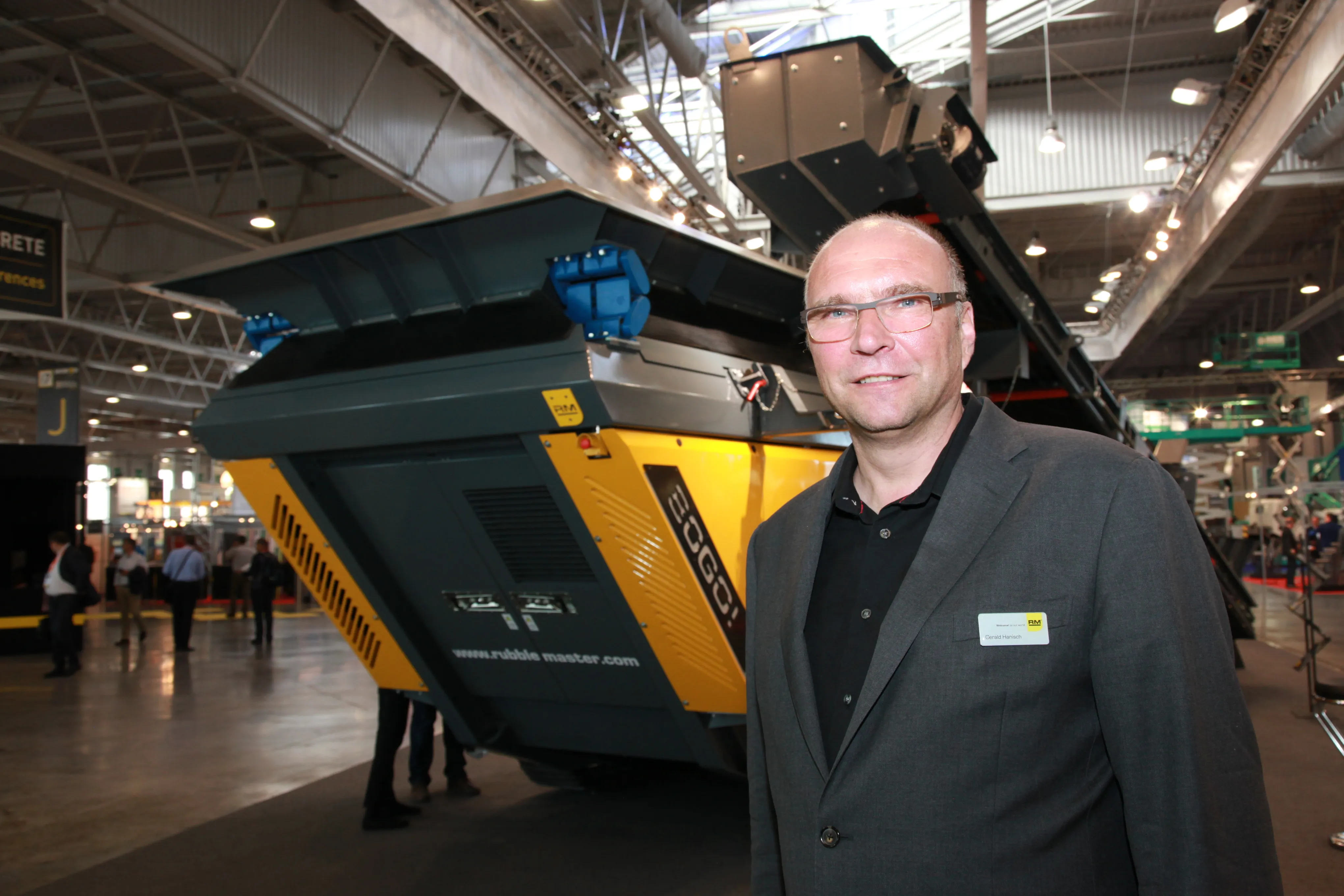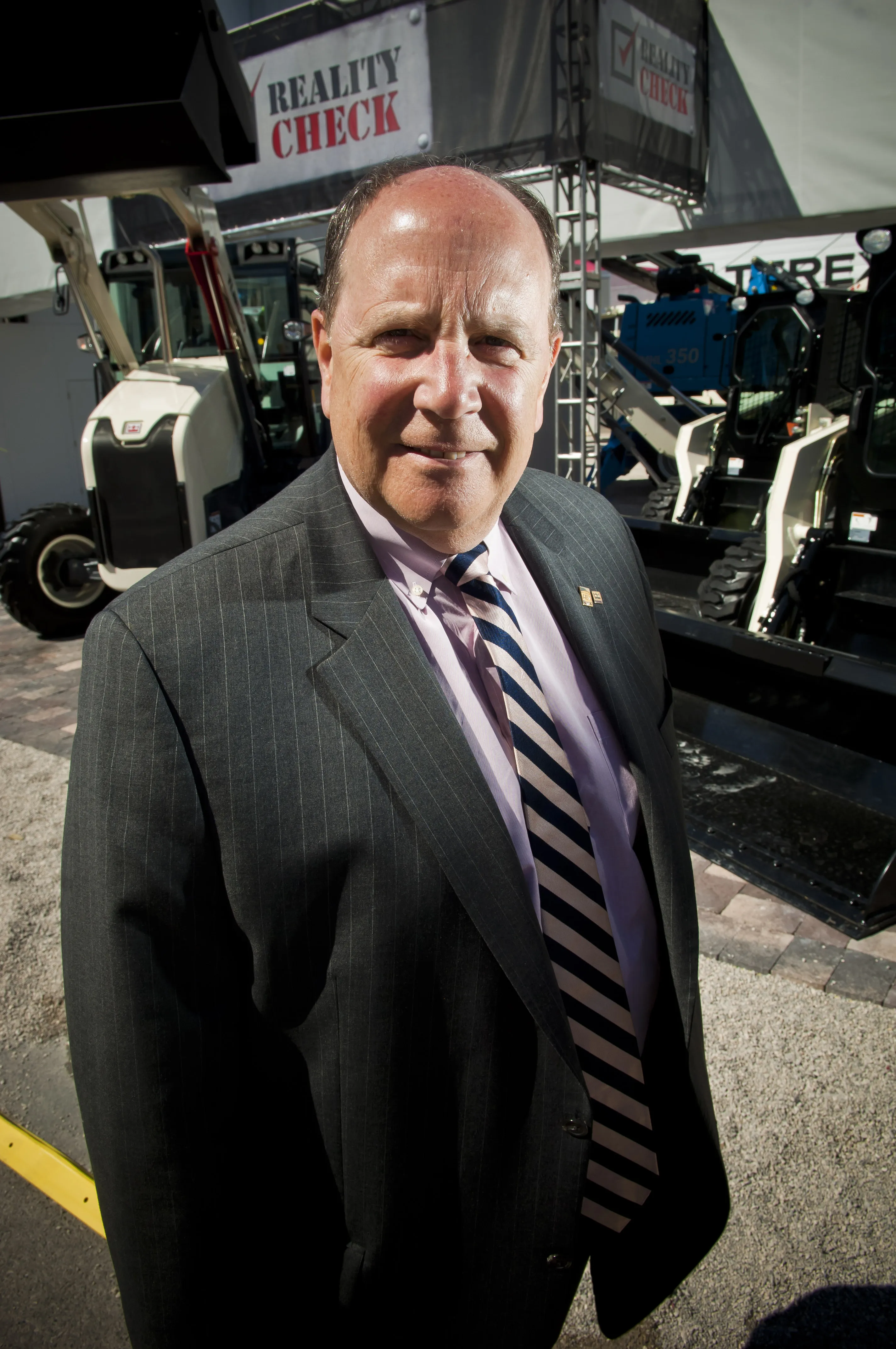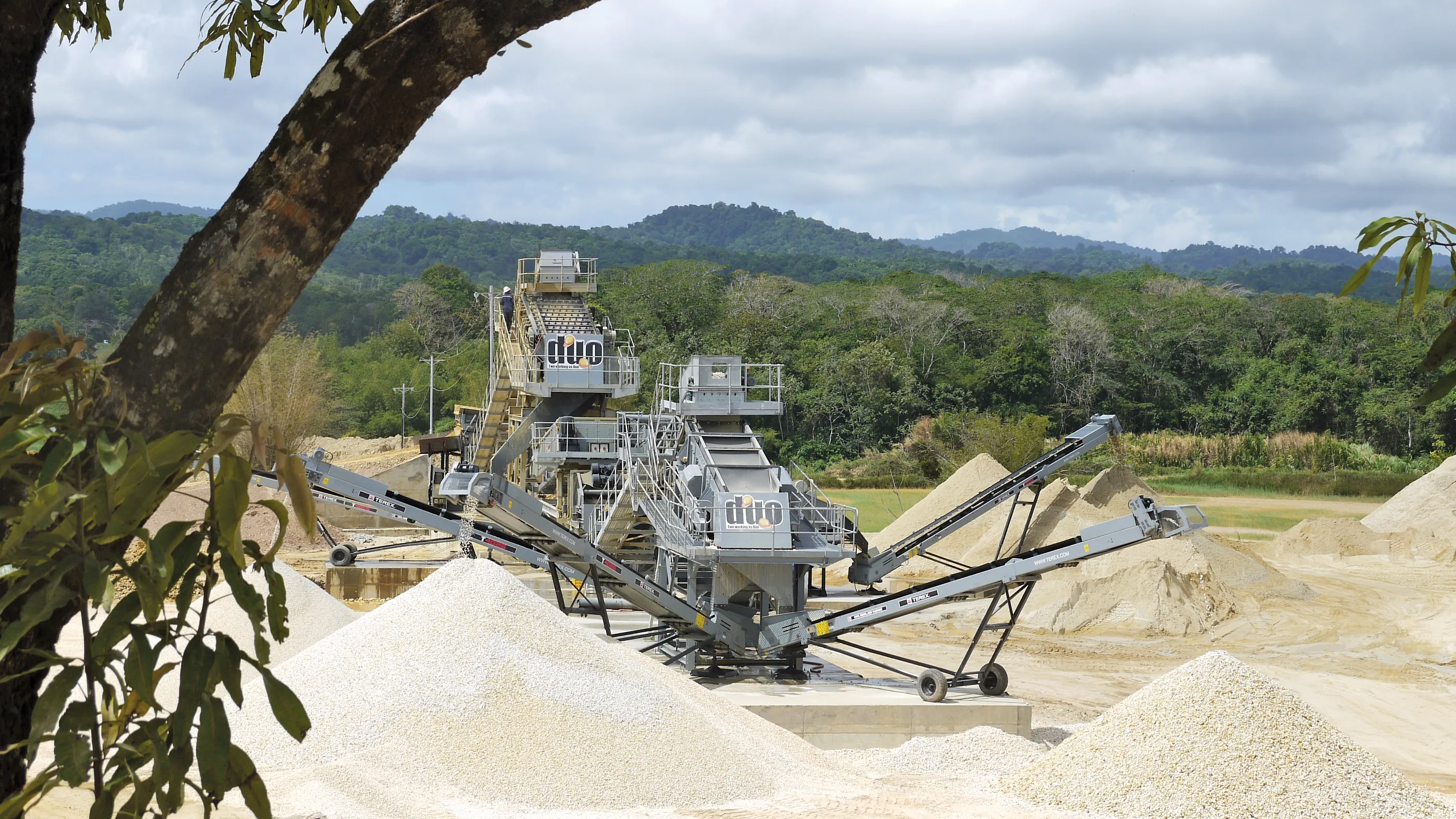
The Austrian compact crushers and screens manufacturer has a large number of its machines rented out at present to customers across Europe, with others rented out to clients in the US.
Four compact crushers - RM 60, RM 70 GO!, RM 80 GO!, and RM 100 GO! - are available for rent, together with a multiple of pre and final screens and other options. The models can produce high quality aggregate in quantities up to 80m³ tonnes per hour, 120m³ tonnes per hour, 160 tonnes per hour, and 250 tonnes per hour respectively.
Gerald Hanisch, CEO of Rubble Master, said the percentage of customers renting and then buying rather than outright purchasing Rubble Master compact crushing and screening equipment is growing within the company’s overall sales. “The whole industry is turning to rentals. Around 50% of our compact crusher sales in Germany are converted from rentals, and 40% of the turnover of our Austria subsidiary is from rentals. We feel that we have done our homework and we can roll out our rental offer on an international basis.”
Hanisch said he was confident that an increase in rental agreements would not harm Rubble Master’s ability to meet the aftermarket needs of its outright purchase customers.
Of why renting rather than buying compact crushers was an increasingly popular option among customers, Thierry Venturini, of Buloc, Rubble Master’s eastern France dealer, who is currently renting out two of the company’s range, said: “They are compact and easy to transport, and renting is economical. The machines are very stable, hardly give any trouble and have high throughput.”
During Rubble Master’s INTERMAT 2015 press conference, Hanisch said that new compact crusher models would be launched by the company later this year.









